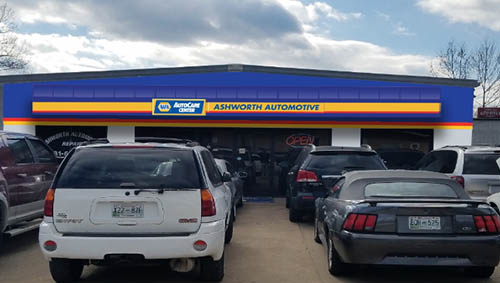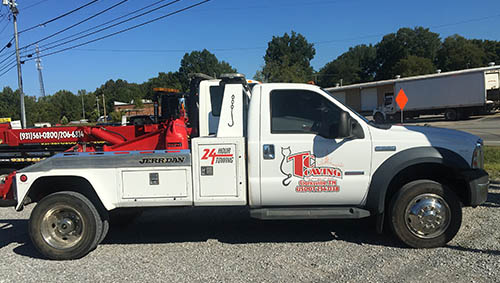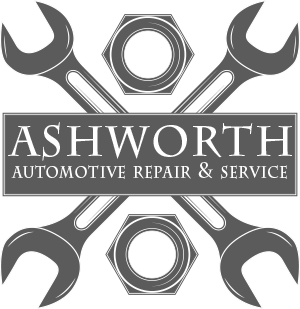CLARKSVILLE, TN TOP AUTO REPAIR SHOP
CLARKSVILLE, TN AUTOMOTIVE REPAIR CENTER
All major and minor repair and replacement, import, domestic, and diesel. Timing Chains, water pumps, wheel bearings, check engine light, diagnostics, air conditioning and heat, timing belts, electrical repair, Transmission repair and replacement.
AUTO
REPAIR >
Ashworh Automotive of Clarksville will provide you with a variety of automotive services, all offered at reasonable rates. For your convenience, Ashworth Automotive is a NAPA certified auto repair center and offer a full automotive solution to serve your auto needs.

AUTO
TOWING >
TC Towing Service is a professional towing service located in Clarksville, TN. No matter if your in a personal or commercial vehicle, we offer a towing solution 24 hours a day 7 days a week. We also offer a full service automotive repair center.

NAPA CERTIFIED TECHNITIONS
AUTO REPAIRS
Ashworth automotive repair center of Clarksville TN is a NAPA Certified repair center located in Clarksville, TN. We offer a wide variety of automotive repair solutions for your vehcile. ASHWORTH AUTOMOTIVE has been providing each customer with excellent service and affordable prices. We make each experience personable and take pride in doing what’s right. From brakes to tire inspection, we are your source for complete auto care.
What we can help with includes:
- Tire Inspection
- Oil Changes
- Tune Ups
- Foreign Auto Repair
- Wheel Alignment
AUTO
REPAIR >
Let us provide you with a variety of automotive services, all offered at reasonable rates. For your convenience, Ashworth Automotive is a NAPA certified auto repair center and offer a full automotive solution to serve your auto needs.

AUTO REPAIRS
AUTO
TOWING >
Receive professional towing services from TC Towing Services of Clarksville, TN. No matter if your in a personal or commercial vehicle, we offer a towing solution 24 hours a day 7 days a week.

OUR SERVICES
Automotive Oil change
Easily topping the list of routine maintenance musts is an oil change. Scheduling this service every three months or 3,000 miles will not only help to ensure your vehicle remains running smoothly, but will also extend the life of your engine. Keep in mind that with advancements in automotive technology, most newer vehicles can go 5,000 miles or beyond between oil changes. If your vehicle has logged more than 100,000 miles, a synthetic blend oil will help.
Automotive Maintaining fluid levels
Having your fluids topped off is simple and can be performed in just a few minutes. These include: oil, radiator, transmission, power steering, windshield washer and brake fluid. Additionally, they can be flushed or changed as needed. Allowing many of these fluids to become dangerously low, or old, can cause serious damage to your vehicle.
Auto Filters
Your vehicle’s filters should be changed between 15,000 and 30,000 miles. Most can be inspected or replaced during a routine oil change. These include the engine air filter, oil filter, fuel filter and cabin air filter.
Spark plugs for your Automobile
Your spark plugs should be changed every 100,000 miles. A bit more complicated than a routine oil change, the time and cost will depend greatly on the year, make and model of your vehicle.
Auto Belts and hoses
Belts and hoses play an integral part in your vehicle’s performance. It is very important to ensure that both are maintained. As belts age, the rubber becomes brittle, causing it to crack. Once the belt begins to crack, it should be replaced as it can fail at any time. If the belt is showing signs of wear on its outer edge, this is also a sign that it will need to be replaced.
Since coolant can get very hot, about 200 degrees F, the hoses that carry coolant are extremely important. Likewise, a belt or hose failure can cause loss of power steering and the electrical charging system, as well as an overheated engine. If your engine overheats, this can cause the cylinder heads to become damaged. In other words, a very expensive repair.
Hoses are generally inspected for softness and swelling. They are then checked for hardening cracks, chafing and heat damage. If any of these issues are detected, your hoses will need to be replaced.
Auto Brakes
Brake issues can start out small but worsen over time. Waiting to have them repaired can greatly increase the costs involved. Having your brakes inspected during a routine maintenance visit can help save you both time and money. During a brake inspection, all major components — rotors, brake pads, shoes and brake lines — should be evaluated.
Brake discs, or rotors, are vital to slowing down and stopping your vehicle. They should be inspected for rough spots, warping or damage. If they are shiny and show little signs of wear, maintenance is likely not needed. If they are damaged or warped, these parts should be resurfaced or replaced immediately.
Your vehicle has both rubber and metal brake lines. Both can crack and leak. A technician will first examine the rubber hoses to ensure they are soft and don’t have cracks. They’ll then check the hard metal brake lines for corrosion and leaking. If either are damaged, replacement is recommended.
Auto Tires & Wheels
Your tires should be inspected routinely to ensure they remain at the recommended air pressure and tread levels. To determine the health of a tire’s tread, a penny test can be easily performed. Place a penny headfirst into the tread grooves of your tire. If you can see the top of Abraham Lincoln’s head, this indicates your treads are shallow and excessively worn, and that your tire will need replacing. Additionally, tires should be rotated every 6,000 miles to ensure even wear.
CONTACT US!
